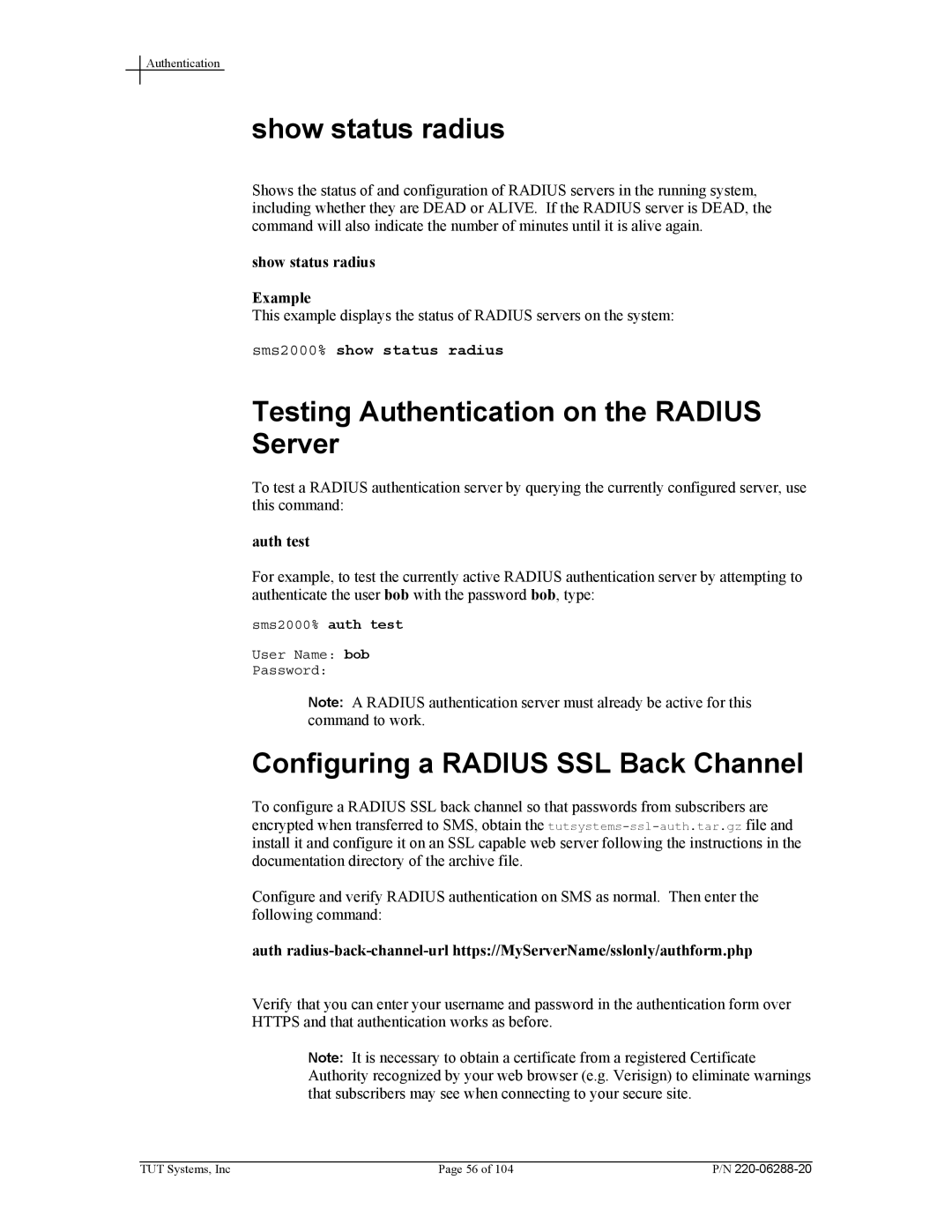
Authentication
show status radius
Shows the status of and configuration of RADIUS servers in the running system, including whether they are DEAD or ALIVE. If the RADIUS server is DEAD, the command will also indicate the number of minutes until it is alive again.
show status radius
Example
This example displays the status of RADIUS servers on the system:
sms2000% show status radius
Testing Authentication on the RADIUS Server
To test a RADIUS authentication server by querying the currently configured server, use this command:
auth test
For example, to test the currently active RADIUS authentication server by attempting to authenticate the user bob with the password bob, type:
sms2000% auth test
User Name: bob
Password:
Note: A RADIUS authentication server must already be active for this command to work.
Configuring a RADIUS SSL Back Channel
To configure a RADIUS SSL back channel so that passwords from subscribers are encrypted when transferred to SMS, obtain the
Configure and verify RADIUS authentication on SMS as normal. Then enter the following command:
auth
Verify that you can enter your username and password in the authentication form over HTTPS and that authentication works as before.
Note: It is necessary to obtain a certificate from a registered Certificate Authority recognized by your web browser (e.g. Verisign) to eliminate warnings that subscribers may see when connecting to your secure site.
TUT Systems, Inc | Page 56 of 104 | P/N |
